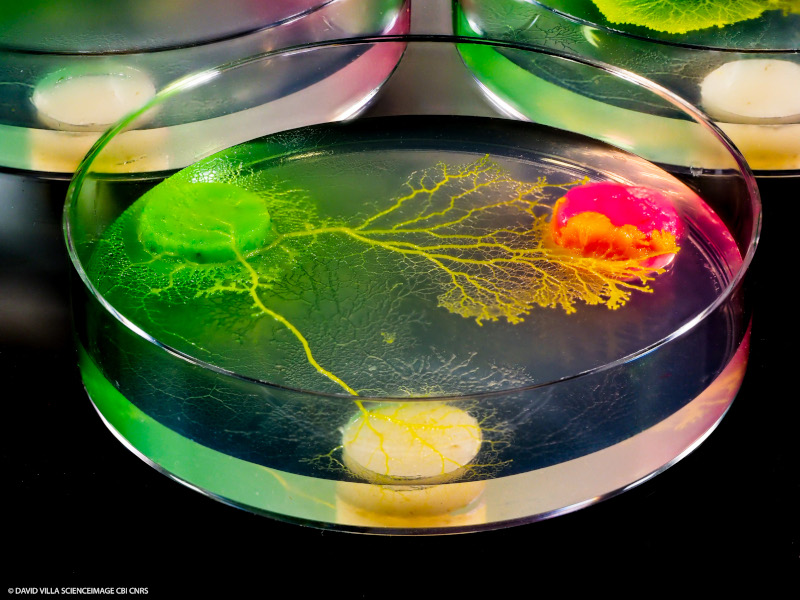
10 December 2021
Audrey Dussutour
University Paul Sabatier
Toulouse, France
Learning and decision making have hitherto been investigated almost exclusively in multicellular neural organisms. Yet, evidence for learning and decision making have been described in single celled organisms: ciliates and slime molds for instance. A photograph of the slime mold Physarum polycephalum is shown below. In the first part of my talk, I will focus on decision making in slime molds and explore various frameworks: nutritional geometry, speed versus accuracy trade-off, Weber's law and social influence. In the second part of my talk, I will show that habituation, a simple form of learning, can be observed in slime molds and may rely on simple mechanisms. Hopefully by the end of my talk, you will be convinced that slime molds are an ideal model system in which to investigate fundamental mechanisms underlying the ground-floor of cognitive abilities.
